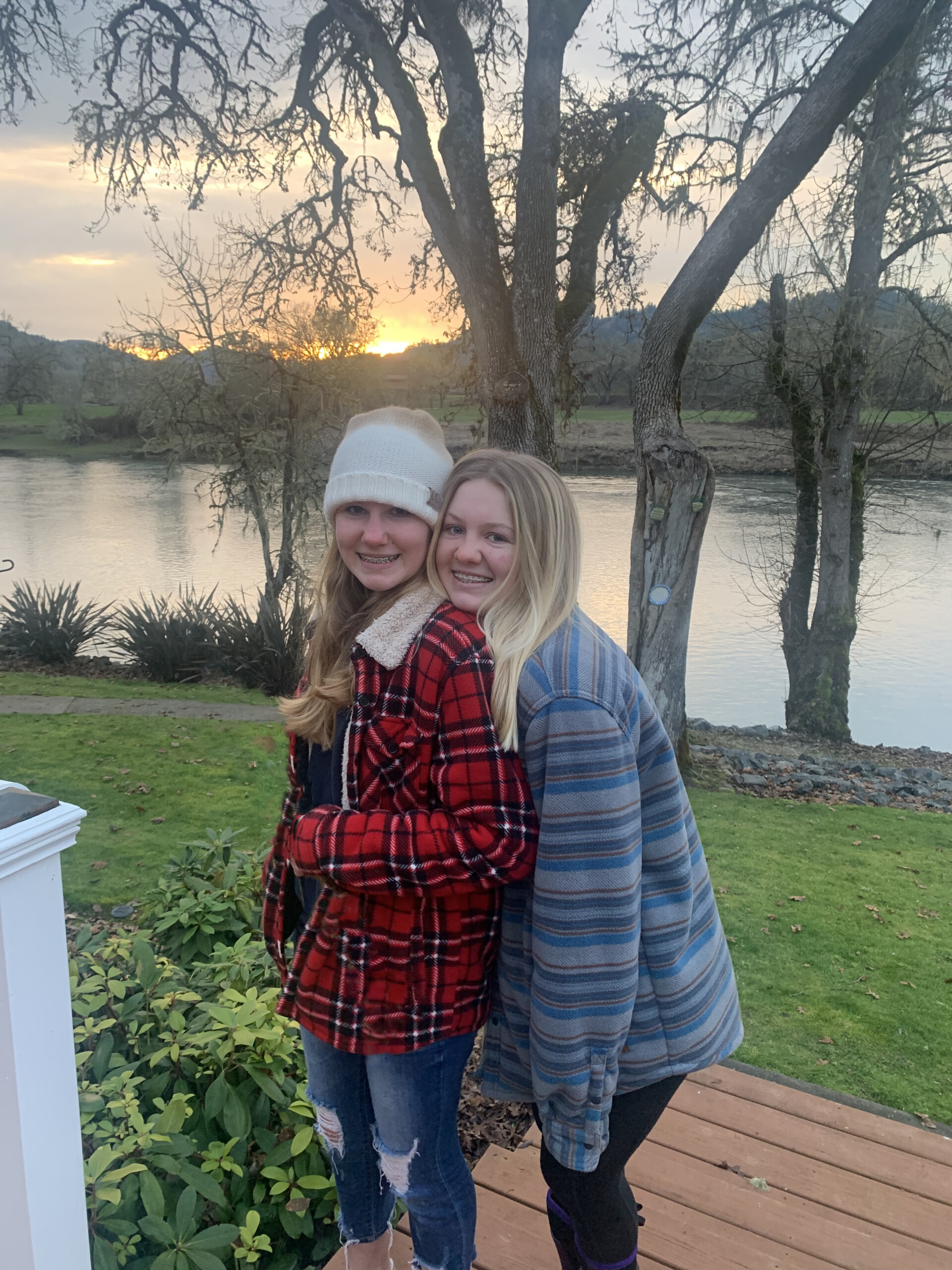
Toni and Bobbi Jack on the rocky banks of the North Umpqua River.
By Chris Egan, Program Coordinator | HSBJG
On the afternoon of July 20th, Toni and Bobbi Jack had recently arrived at their grandparents’ house in rural Roseburg, Oregon. The house was situated close to the rocky banks of the North Umpqua River.
Toni was enjoying the summer evening in a hammock while her sister Bobbi was on a neighbor’s dock on the water. At approximately 8 p.m. the girls heard a faint call for help, followed by a second call for help, was coming from the direction of the river. Bobbi made verbal contact with the people in the river and they responded to her by requesting that she called 911.
As the event unfolded and prior to acting, the girls had a moment to make eye contact with each other and indicate that they were up for the challenge. After all, they’d been trained in the Bolsa Chica State Beach Junior Lifeguard Program in California. Toni began to run to the dock, while asking her grandfather to call 911.
The rocky banks of the river were a challenge for their initial response, but both Bobbi and Toni jumped into the frigid waters and began a 100 yard upriver swim toward the location where a victim had been dragged out of the river. As the girls approached the river island, they did their best to provide verbal instructions to the bystanders who had begun to assess and perform CPR.
The girls arrived on the island and using the training from their junior lifeguard program they were able to determine they had an unresponsive male with no pulse. Toni began to perform compressions on the victim while Bobbi attempted to obtain information about the victim. Bobbi questioned the two females and male on the island and determined that the victim was swimming in the water and had an unknown episode and was submerged below the surface.
The three bystanders were friends of the victim and were able to drag him to the island. The bystanders were very traumatized by the events unfolding and Bobbi exhibited some excellent command presence while talking with the friends of the victim. But the victim was on an island in a river in a rural area. Help would be delayed.
Toni eventually began to fatigue, as her relatively petite frame made performing compressions on the much larger victim very challenging. Toni was able to encourage the male bystander to assist with the compressions, although he was initially reluctant. After some time 2-3 more bystanders (including the Jacks’ own grandmother) arrived via canoe and kayak, and began to assist with compressions while all involved awaited EMS personnel.
Due to the rural location of the incident it was determined that first responders would need to be flagged down in order to locate the victim. Without hesitation Toni jumped back into the river, swam across, and ran down an adjacent road approximately 100 yards to assist with the contacting of EMS.
Meanwhile, Bobbi jumped into a kayak and took it across the river in order to provide potential transportation for EMS to access the victim. EMS was not able to utilize the kayak and eventually the victim was recovered from the island via jet boat and transported to the medics on a nearby dock. The victim however was pronounced dead while being transported to the hospital.
Toni and Bobbi demonstrated amazing courage in their attempts to render lifesaving aide on that mid-summer evening in rural Oregon. The girls attributed the training they received in their California State Parks junior lifeguard program as providing them with the skill set and knowledge that enabled them to act appropriately in this very stressful situation.
The Jack sisters, through their actions, have demonstrated the importance of junior lifeguard programs throughout the country and the significance that exposure and training in lifesaving measures can have on our communities. In recognition of their actions, Toni and Bobbi Jack were recognized by the USLA with a Heroic Act Award.

